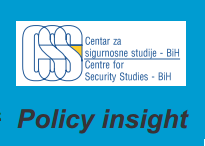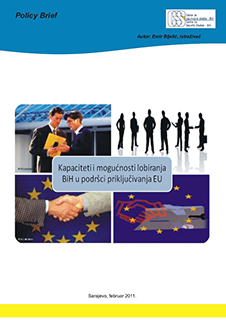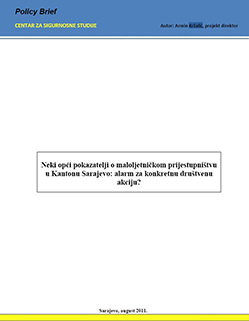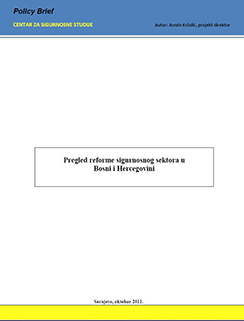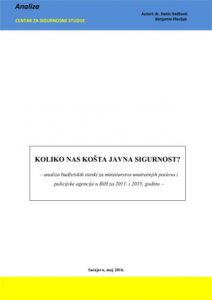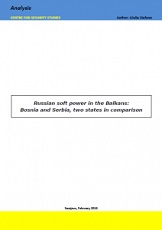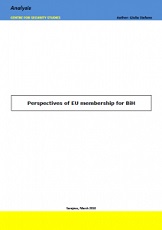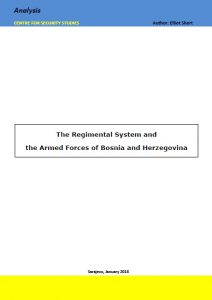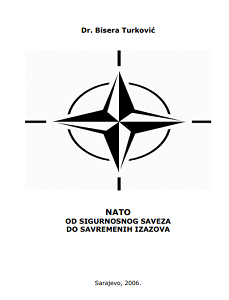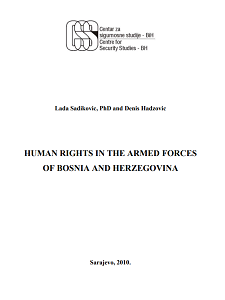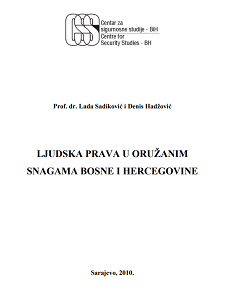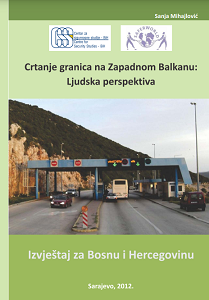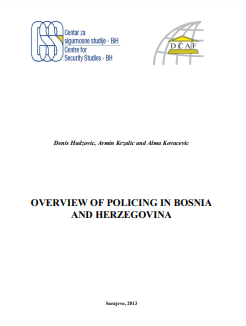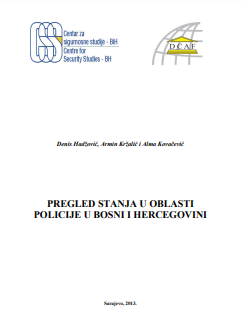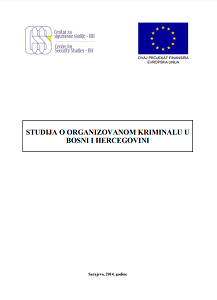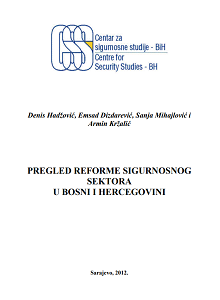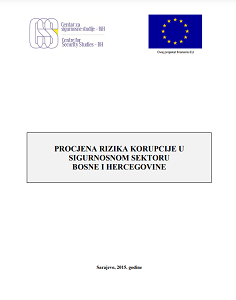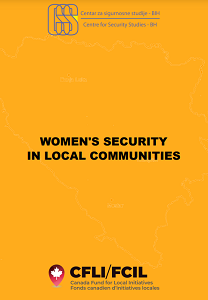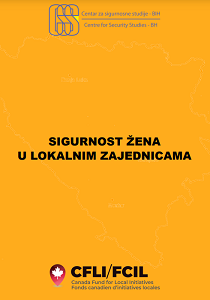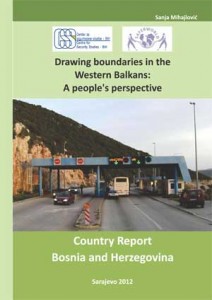Studija o organizovanom kriminalu u Bosni i Hercegovini
Author(s): / Language(s): Bosnian
Keywords: BiH; organized crime; study; EU;
Studija o organizovanom kriminalu u Bosni i Hercegovini bazirana je na potrebi da se donosiocima odluka u institucijama vlasti olakša identifikacija prioritetnih strateških područja u borbi protiv organizovanog kriminala. Inicirana je željom da se popune eventualne praznine koje se mogu pojaviti prilikom donošenja javnih politika baziranih isključivo na informacijama i podacima koje su u posjedu institucija vlasti. Analiza stavova i percepcije građana o pitanjima koja su u djelokrugu rada nadležnih službi, trebala bi biti jedan od izvora informacija kojem će zvaničnici posvetiti adekvatnu pažnju, posebno imajući u vidu da je vezana za oblast vladavine prava, odnosno ugrožavanju ljudske sigurnosti. Rezultati predstavljeni u ovoj studiji nastali su kao proizvod analize kvalitativnih i kvantitativnih podataka, pri kompleksnom pristupu fenomenu pojave organizovanog kriminala koji se morao sagledati s više aspekata. Stoga je i pristup realizaciji istraživanja morao biti višedimenzionalan, pridajući podjednak značaj institucijama iz oblasti pravosuđa i sigurnosti, ali i izvorima koji nisu dio zvanične vlasti, ali su prirodom svojih poslova veoma upućeni u oblast borbe protiv organizovanog kriminala. Predmetna studija ne predstavlja dokument koji zadire i ukazuje na pojedine slučajeve istražnih kriminalnih radnji koje su provodile ili provode nadležne institucije, već ima za cilj da iz perspektive civilnog društva identifikuje područja realnih prijetnji koja bi se trebala uzeti u obzir prilikom izrade strateških državnih strategija uz preporuke za konkretne operativne planove borbe protiv organizovanog kriminala. • Mnoštvo različitih inkriminacija koje obuhvata u svom ispoljavanju organizovani kriminal, raznorazni pojavni oblici njegovog manifestiranja, te niz drugih karakteristika koje nosi sa sobom, doveli su do toga da danas ni u teoriji ni zakonodavstvu ne postoji opći konsenzus o tome šta se sve podrazumijeva pod pojmom organizovani kriminal. • Većina domaćih i stranih autora smatra da organizovani kriminal uključuje komponentu nužnosti postojanja veze kriminalne organizacije s državom i njenim autoritetima, kao bitnim elementom organizovanog kriminala. • U stranoj literaturi postoji mnoštvo definicija organizovanog kriminala. Među njima se posebno izdvaja definicija UN-a, prema kojoj se organizovani kriminal definiše kao "proširena i kompleksna kriminalna aktivnost koju vrše grupe lica, bilo labavo ili čvrsto povezane, u cilju ilegalnog obogaćivanja na račun društvene zajednice i njenih članova”. • Evropska unija nije prihvatila model izrade jedinstvene definicije organizovanog kriminala, već je usvojila listu od 11 njegovih karakteristika, od kojih treba da postoji šest kako bi se moglo govoriti o organizovanom kriminalu. • Prema Krivičnom zakonu Bosne i Hercegovine grupa za organizirani kriminal definisana je kao organizovana grupa ljudi od najmanje tri lica, koja postoji neko vrijeme, djelujući u cilju činjenja jednog ili više krivičnih djela za koja se po zakonu može izreći kazna zatvora tri godine ili teža. • Autori iz naše zemlje i regiona dijele zajednički stav da glavnu motivacijsku snagu organizovanog kriminala, kao heterogene i složene pojave, čini finansijska dobit, odnosno munjevito sticanje mega profita, kao i nemogućnost otkrivanja u vršenju ovih kriminalnih aktivnosti. • Analizirajući značajan broj međunarodnih dokumenata koji tretiraju pitanja organizovanog kriminala, može se reći da postoji izuzetno veliki broj djelatnosti organizovanog kriminala, ali se među onim najdominantnijim svakako ističu: trgovina narkoticima, pranje novca, trgovina ljudima i autokriminal. • Bosanskohercegovački institucionalni kapaciteti za borbu protiv organizovanog kriminala postoje. Oni su prisutni u velikom broju i sa dosta širokim dijapazonom kapaciteta, od zakonodavnih, operativnih, preko savjetodavnih i kontrolnih kapaciteta. Na nivou BiH postoje 142 institucije koje imaju svoje mjesto i ulogu u borbi protiv organizovanog kriminala.
More...
